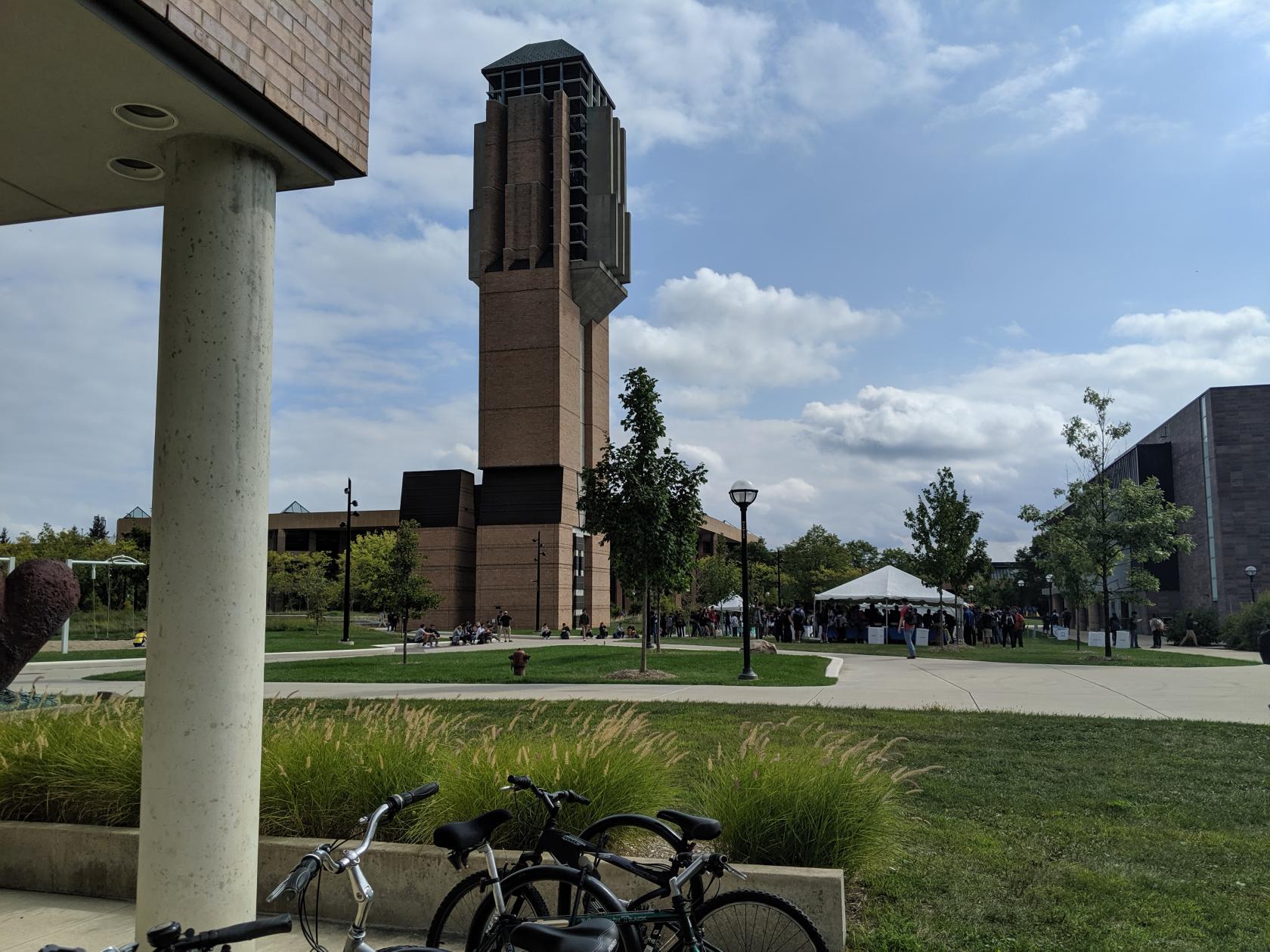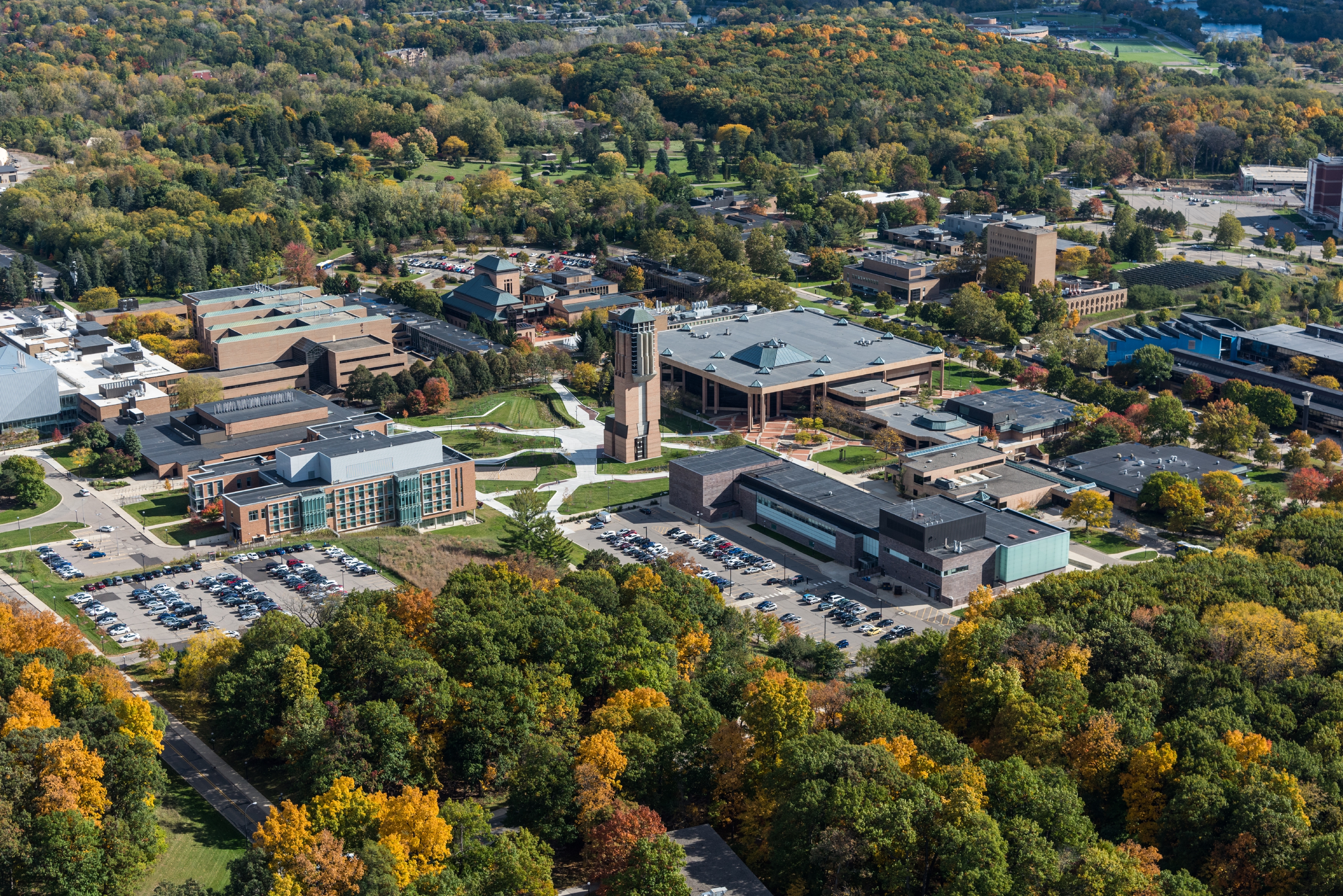Blog
Get the inside scoop about life at U-M and applying to Michigan from current student bloggers, Admissions staff, and guest faculty writers.

Get the inside scoop about life at U-M and applying to Michigan from current student bloggers, Admissions staff, and guest faculty writers.


As a high school senior trying to chart the trajectory of your entire future adult life, it is easy to be swept along by the anxiety of your parents and peers. This is natural – when making hard life choices, your opinions are shaped by those around you – but it can also be confusing, misleading, or alarming when it doesn't need to be.
I thought it would be helpful to write about the things I considered when choosing a college, and whether those things made a difference for me in the end. Keep in mind that this is based on my own experiences, and other people are likely to think differently than me on many (if not all) of the points I mention below. (For instance, I list U-M's proximity to my hometown as an advantage, but I have several friends who've cited U-M's distance from their hometown, and especially from their home life, as a key factor in their choice to come here.)
My broader message is that, as you choose a college, you should try to be practical, be skeptical, but most of all, be honest with yourself: it's a big decision worth making carefully.
Didn't really matter: sports

This may be a bit heretical, but I haven't been to a single football game my whole time here. I kind of regret not getting to share that experience with my friends, but it doesn't bother me as much as I'd expected.
I was never really a fan of sports, whether it be hand-egg or roundball. I also don't do well with very large crowds, noisy public spaces, and standing for long periods of time without immediate restroom access. I'm happy when my friends are happy that our sports teams are doing well, but I prefer to spend my Saturdays in bed doing my best imitation of a Snorlax.
Definitely mattered: cost and affordability

Out of all of the reasons that I list, this one will probably vary the most from person-to-person. Michigan isn't necessarily renowned as a cheap university – historically, it's struggled to boost enrollment among students from disadvantaged socioeconomic backgrounds – but it does offer generous financial aid for low-income students in-state who gain admission, and even for middle-income and out-of-state students as well.
I'm extremely fortunate in that my parents are able to pay for my college education fully out-of-pocket, without loans. I'm listing this as a plus for U-M because, despite its cost being significant, many of my other options were terrible from a cost perspective.
Including rental costs for my apartment, attending U-M costs me around $27,000 per year. I also applied to, and was accepted by, the University of Illinois at Urbana-Champaign; as an out-of-state student, attending UIUC during the 2016-2017 academic year would have cost me $51,672, with my only financial aid being student loans.
This might've been a more challenging decision if UIUC could offer something that U-M couldn't. However, I couldn't find anything that would justify the additional $100,000 of post-grad debt beyond UIUC's name sounding more French.
And, if I'm being entirely honest, that is literally the entire reason I applied to UIUC. I was deeply scared of not "distinguishing myself" relative to my high school classmates, and I thought that most of them would go to Michigan. Attending UIUC, my high school senior self thought, would let me one-up my classmates at reunions by saying, "Ho ho! You go to Michigan? Well I go to Urbana-Champaign."
Which, I eventually realized, was an objectively dumb reason to go $100,000 into debt.
Didn't matter that much: famousness of the faculty
I remember, when I went to visit campus as a prospective student, that our presenters made a point to emphasize how many world-renowned academics, scholars, and researchers worked as professors on U-M's staff. It’s true: faculty’s high level of scholarship does create an expectation for academic accomplishment, which trickles down to other faculty and students. Their presence does make an impact. One tangible way it does this is through grant funding. Michigan attracts a staggering amount of grant funding for research, and that works to benefit the university as a locus of academic interest in addition to helping all humankind.
That is laudable, but in practice, I don't think that the typical student benefits from this in a tangible way. It certainly benefits those students brilliant (and lucky) enough to secure research assistantships with those professors, for those students who (for instance) go on to secure Fulbright Scholarships with their professors' sponsorship, and so on. But, practically speaking, I think that the vast majority of students – whether they be freshmen muddling their way through basic degree requirements, or upperclassmen finishing an advanced course of study – might never touch this facet of university life in any substantial way.
There are exceptions to this. As a computer science major, one of the most notable is Professor J. Alex Halderman, a famous cybersecurity researcher who made national headlines by testifying before the Senate Intelligence Committee on Russian interference in the 2016 Presidential elections. Most terms, he helps teach Michigan's introductory cybersecurity course, and he attracts waves of student enrollment whenever the course guide lists him as a primary instructor.
But that's not always the case: being a brilliant scientist doesn't necessarily make someone a good teacher, and while I've personally been fortunate in having instructors who were both, most of my best teachers have just been simple "lecturers" hired specifically to teach, rather than to do research. Famous faculty is a plus, but I don't think it should be a prospective student's deciding factor.
Definitely mattered: closeness to home
This point is more straightforward; my hometown is only a half-hour's drive away from Ann Arbor, which makes lots of things really simple. Moving into Bursley Hall as a freshman took just two trips in the family's Ford station wagon, for instance.
But more than that, being close to campus gave me a safety valve of being able to pop back into the family home whenever the twin stresses of school and adulting became too unmanageable.
I'm only slightly embarrassed to admit that my parents still meal-prep for me when I visit on weekends. This might be stunting my cooking skills during a critical period of my life, but it's nice to have access to good, home-cooked food after a long day, rather than the All Natural, All Plant, All Soylent diet that I'd otherwise eat through Chez Betty.
Didn't matter: being able to brag about the school that I go to

This might be peculiar to my family, but the particular school that I go to really doesn't come up that often.
Which is surprising to me, since there are a number of high achievers in my extended family – I have cousins who went to Stanford, and uncles who were very vocal about that fact. But I've never actually been in a situation where I wanted to flex on a someone from a "lesser school" or where I felt pressured to justify my choice (versus an Ivy, or a 'Tech, or a 'ford). The latter is unnecessary – it's not like I'm being hamstrung by my choice of university – but the former just isn't something that a well-adjusted adult would ever do in person. It would be embarrassing, not empowering.
I keep in touch with a number of friends from high school, most of whom went to smaller state schools: Central Michigan, Michigan State, Wayne State, and U-M's satellite campus in Dearborn. And even though those schools carry different levels of "brand recognition" and offer different opportunities to their students – which may well be less than what Michigan’s Ann Arbor campus can offer – I'm at a point where I can barely imagine wanting to snerkle at someone for going to a smaller state school. I know that people do – I wanted to, when I was younger – but now, it would feel both pointless and pointlessly cruel.
I stand on this soapbox often, but college is a stepping stone into adult life. Its value is its value to its students' growth, not its value as a conversational trap card with which to banish relatives to the Shadow Realm at Thanksgiving dinner.
Definitely mattered: big school, big opportunities

But on that note, there's a lot of growth that Michigan helps to make possible. I once read a reddit comment claiming that "you can make a big school feel small, but you can't make a small school feel big," and that stuck with me.
Michigan's size and multidisciplinary prominence is, I think, one of its biggest strengths as a place of learning. Even as a nerdboi who came into college knowing that he would study computer science, I benefit from the breadth of what Michigan offers, whether I'm bumbling through a graphics design course, staggering a writing professor with the depth of my literary incompetence, learning computer architecture and C programming from specialist computer engineers, or convincing a music instructor through my compositions that there is no God, Michigan's expanse helps to shape me into a better person. That's why I'm glad to study here.

(rhymes with "Dylan") is a senior in the College of Engineering. Though free-spirited and soulful in his youth, Yilin was doomed to major in computer science after being kidnapped by feral app developers and raised in the Michigan wilderness. Outside of his coursework, Yilin works as an Instructional Aide for EECS 482: "Intro Operating Systems", writes plugins for obscure open-source text editors, and injures himself grievously while riding Bird scooters.